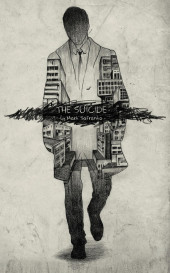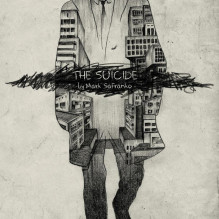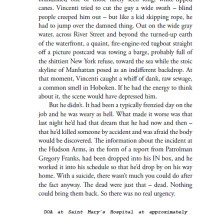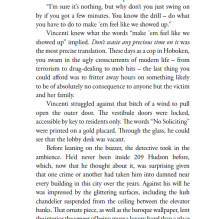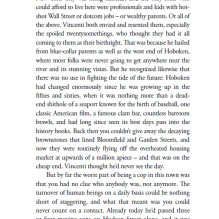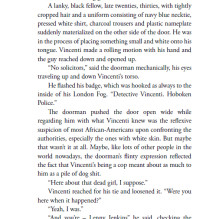The Suicide
Author:
Mark SaFranko
ISBN: 9780957142770 | 288 pages
Hoboken: an amorphous, violent city, transformed into a chic high-rent neighbourhood full of disposable incomes and high aspiration. Police detective Brian Vincenti is charged with investigating the case of a young woman’s self-destruction – or murder – after she falls from an eleventh floor window in one of the town’s up-and-coming districts. Equally as haunted by his past as he is tortured by his present, Vincenti’s journey takes us beyond the damp, stained streets of Hoboken’s nightlife, and into his own chaotic world: that of transsexual former colleague Ellen Smith, his turbulent family life, and unshakeable demons.
Mark SaFranko’s work has been compared to Charles Bukowski, John Fante and Dan Fante. Subverting the conventional notion of the detective novel, and at all times original and unique, The Suicide invites comparisons to the psychological fiction of such classic crime writers as Georges Simenon, Patricia Highsmith and Ross MacDonald.
Purchase options
| Direct from Honest Publishing (UK) |
£9.99 + £1.95 P&P |
|
| Direct from Honest Publishing (US) |
£9.99 + £3.00 P&P |
|
| Direct from Honest Publishing (EU) |
£9.99 + £3.00 P&P |
|
| Ebook (Kindle) |
£3.69* |

|
| *Price may change |
|
|
| From Amazon (UK) |
|

|
| From Amazon (US) |
|

|
“The Suicide is a major work by one of America’s best authors. SaFranko brings together noir, suspense and deft plotting to keep the reader on the edge of his seat. This book is a must read.”
Dan Fante (Chump Change, 86’d, Spitting Off Tall Buildings)
“Mark SaFranko is a master storyteller who never shies away from the darkest themes of guilt and retribution. The Suicide is a first-rate intelligent thriller, teeming with complex characters finely honed right down to the depths of their souls.”
Sam Millar (Dark Souls, On The Brinks, The Redemption Factory)
This book is tagged with: Crime novel, Mark SaFranko, the suicide, thriller. This entry was posted
on Wednesday, July 16th, 2014 at 10:10 am and is filed under Novels, Our Books.
You can follow any responses to this entry through the RSS 2.0 feed.
You can skip to the end and leave a response. Pinging is currently not allowed.










